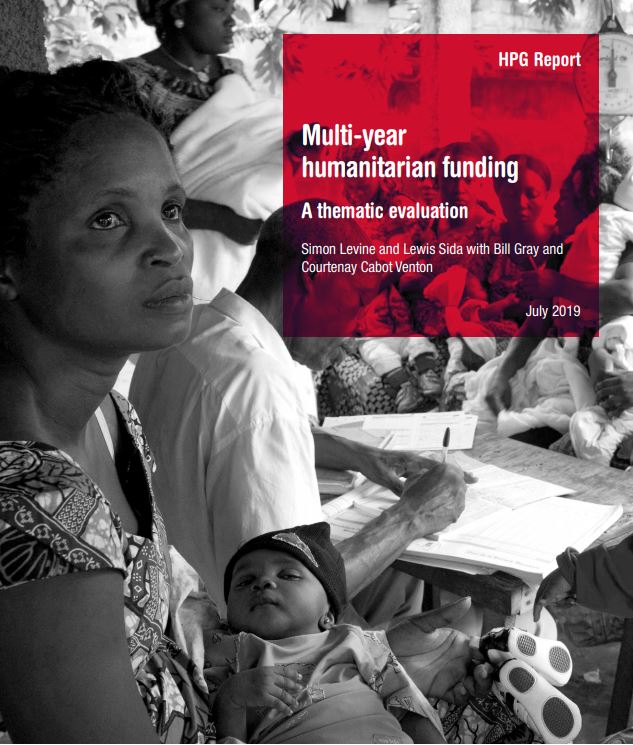2019 | Humanitarian Policy Group

Humanitarian aid is largely concentrated in crises that are protracted or recurrent. In 2016, 60% of global humanitarian financing went to just 10 countries. Almost three-quarters of this aid went to long-term recipients (where a crisis has lasted eight years or more) and 86% went to crises that had endured over three years (Development Initiatives, 2018). In many of these countries, such as the four studied for this evaluation, crises have endured for decades but humanitarian aid has remained annualised and short term. Despite multiple commitments, development assistance has not filled this gap, remaining largely absent from the most intractable and difficult crises.
DFID introduced multi-year humanitarian funding (MYHF) in 2014 in acknowledgement of these facts. With the introduction of longer funding timeframes, it was anticipated that there would be improvements in cost-efficiency, better preparedness and earlier response, better-quality programming, and the ability to address underlying causes of crises and help build resilience.
To test how far these potential benefits can be realised in practice, DFID commissioned Valid Evaluations to undertake a four-year thematic evaluation of MYHF to run in parallel with the first MYHF business cases in Sudan, the Democratic Republic of Congo (DRC), Ethiopia and Pakistan. The evaluation was asked to answer questions on whether MYHF helped build resilience, whether contingency funding led to quicker response and the extent to which MYHF provided better value for money (VFM).
This report summarises the learning from the thematic evaluation and employs an integrated analysis of separate country and themed studies to identify which factors shaped people’s resilience and how far humanitarian aid was addressing those factors with MYHF.

1621 North Kent Street, Ste 900,
Arlington, VA, 22209
P 202.534.1400
F 703.276.1433
Website Photos: © mari matsuri
